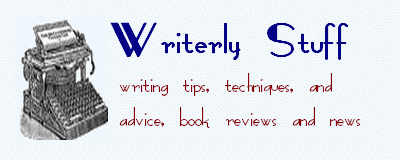Oh, oops, excuse me, maybe Mr. Franzen doesn't realize his paper books are now ebooks.
And that he's gotten royalties on them.
And that the world is gonna end this year - ALL BECAUSE OF THOSE DAMNED EBOOKS!
That's right. It's not the Mayans or some fringe cult saying it's the end of civilization.
It's Jonathan Franzen, provacateur (what, not selling enough of your books, paper or electronic?), snob, and know-it-all, who declares ebooks will be the end of us all. Or society. Or something.
Chew on This One
The
Telegraph piece starts off with Mr. Franzen saying:
The technology I like is the American paperback edition of Freedom. I can spill water on it and it would still work! So it's pretty good technology. And what’s more, it will work great 10 years from now. So no wonder the capitalists hate it. It’s a bad business model.
Ever hear of a baggie? One of those things you usually store food in? I use that when I want to read when I'm taking a bath. Had a couple of drips on it. And it keeps on ticking. (Just like the Energizer bunny.)
Capitalists hate ebooks? Since when? Where does he get his info from? Is that why there's been an ebook explosion, because capitalists hate them? Hah! I would think the number one thing Capitalists want is Capital (duh), and they're doing so, despite what this snob says.
Can This Franzen Guy Get a Grip?
I mean, really. He comes up with tripe like this:
The Great Gatsby was last updated in 1924. You don’t need it to be refreshed, do you?
That was again taken from The Telegraph's write up
here.
What the hell does that mean? So the words are reformatted for different devices. So? The original words are still there, the ones Fitzgerald wrote over 80 years ago (egad). How does putting those exact, same words in a different medium (what he's talking about being "refreshed," I guess) make it less worthy or damaging to civilization.
And this is coming from someone who couldn't get into The Great Gatsby. Maybe at some point, I'll get it in ebook form, and I'll like it (because I can make the fonts bigger, something that can't be done with a paper book).
And this is also coming from someone who loves paper books. But what I don't like about paper books is that (a) They take up a lot of space and (b) They're a pain in the ass to lug around. I have
The Way of Kings by Sanderson in hardback. It's a friggin' brick. You think I'm going to cart that mother around? Noooo way!
In Summary...
Okay, so Mr. Franzen will be famous for about a week or so, until something else comes up. (I hadn't heard of him before someone pointed out what this guy said on Konrath's blog, in the comments section.) Despite the rant above, I wish him well in selling his books, both print and electronic. And that's what he should be concentrating on, not on trying to be the latest provacateur or loudmouth or whatever you want to call him.
Because at the end of the day (thank you
Antrel Rolle), this is just another writer's thoughts on the whole paper versus ebook thing.
Enjoy your day! :-)

